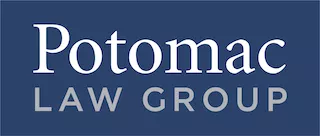USCIS withdrew the proposed rule published at 83 FR 24415 on 5/29/18, which would have removed regulations on the International Entrepreneur parole program. (86 FR 25809, 5/11/21). The International Entrepreneur parole program now remains a viable option for foreign entrepreneurs to grow their businesses in the U.S.
The Entrepreneur Program parole authority to grant a period of authorized stay, on a case-by-case basis, to foreign entrepreneurs who demonstrate that their stay in the U.S. provides a significant public benefit through the potential for rapid business growth and job creation.
Under the IE (International Entrepreneur) program, parole may be granted to up to 3 entrepreneurs per start-up entity, as well as their spouses and children. Entrepreneurs granted parole are eligible to work only for their start-up business. Their spouses may apply for employment.
Entrepreneurs applying for parole under this rule must demonstrate that they:
- Possess a substantial ownership interest in a start-up entity created within the past five years in the United States that has substantial potential for rapid growth and job creation.
- Have a central and active role in the start-up entity such that they are well-positioned to substantially assist with the growth and success of the business.
- Will provide a significant public benefit to the United
States based on their role as an entrepreneur of the start-up
entity by showing that:
- The start-up entity has received a significant investment of capital from certain qualified U.S. investors with established records of successful investments;
- The start-up entity has received significant awards or grants for economic development, research and development, or job creation (or other types of grants or awards typically given to start-up entities) from federal, state, or local government entities that regularly provide such awards or grants to start-up entities; or
- They partially meet either or both of the previous two requirements and provide additional reliable and compelling evidence of the start-up entity's substantial potential for rapid growth and job creation.
- Otherwise merit a favorable exercise of discretion.
- Filing and obtaining approval of a Form I-941 application under this rule will not, by itself, constitute a grant of parole. If your Form I-941 application is approved, you must visit a U.S. consulate abroad to obtain travel documentation (e.g., a boarding foil) before appearing at a U.S. port of entry for a final parole determination. A Canadian national traveling directly from Canada to a U.S. port of entry may present an approved I-941 at the U.S. port of entry without first obtaining travel documentation.
A spouse or child of an entrepreneur applying for parole under this rule must demonstrate that he or she:
- Is independently eligible for parole based on significant public benefit or urgent humanitarian reasons; and
- Merits a favorable exercise of discretion.
The content of this article is intended to provide a general guide to the subject matter. Specialist advice should be sought about your specific circumstances.

